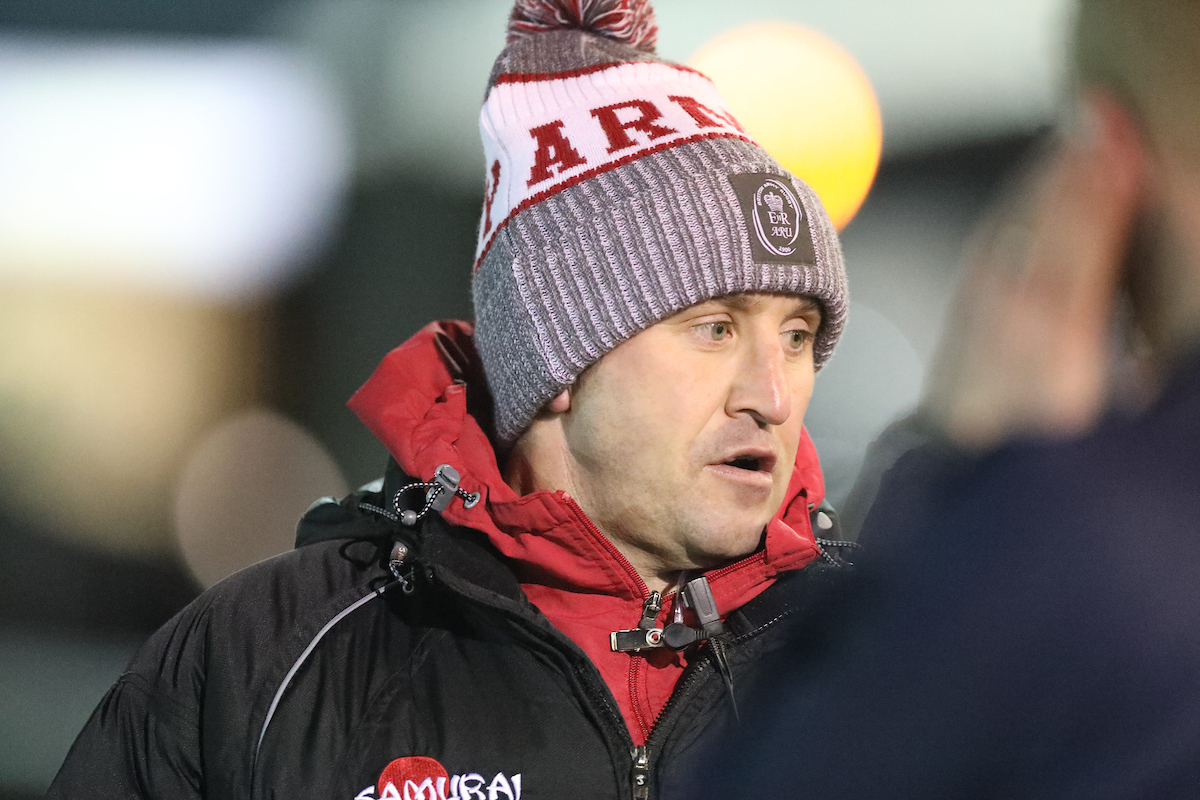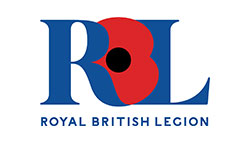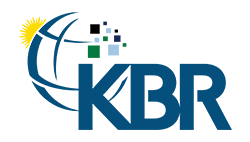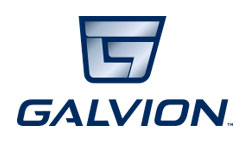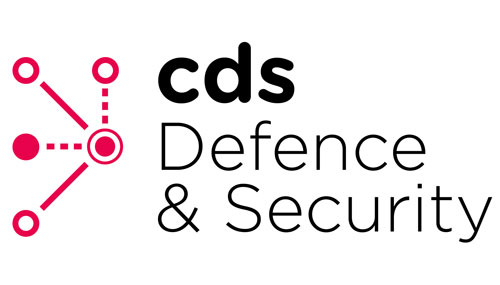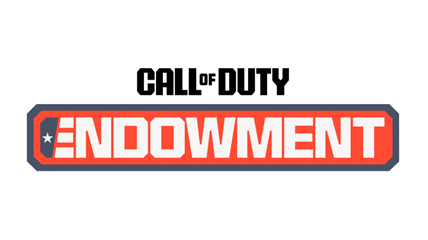Any coach aspires for an unbeaten year, but for Capt Mal Roberts (RLC) having his first 12 months end with a 0 in the losses column is certainly bittersweet, not least because there is a 0 in the played column, too.
Appointed into the role in May 2020 after a stellar career as a player and plenty of experience coaching within the Army set-up as an assistant for the Senior XV and head coach of the Under-23s, Capt Roberts’s tenure may not have had any matches, or even training camps, but it has nevertheless included a number of steps towards making the squad an even more competitive outfit than in previous years, such as the introduction of regional testing hubs to keep an eye on the physical conditioning of the players and a restructure of the pathway from Under-23 into the Senior team, along with the inevitable challenges of maintaining morale within a squad that has not been able to have face-to-face contact for this extended period of time.
So it is understandable that with Units able to play Ready4Rugby within Garrison areas, and the RFU moving towards full contact training and matches over the next few weeks, that Capt Roberts is now relishing the prospect of getting back to preparing for rugby matches and the road to the 2022 Inter-Services Championship.
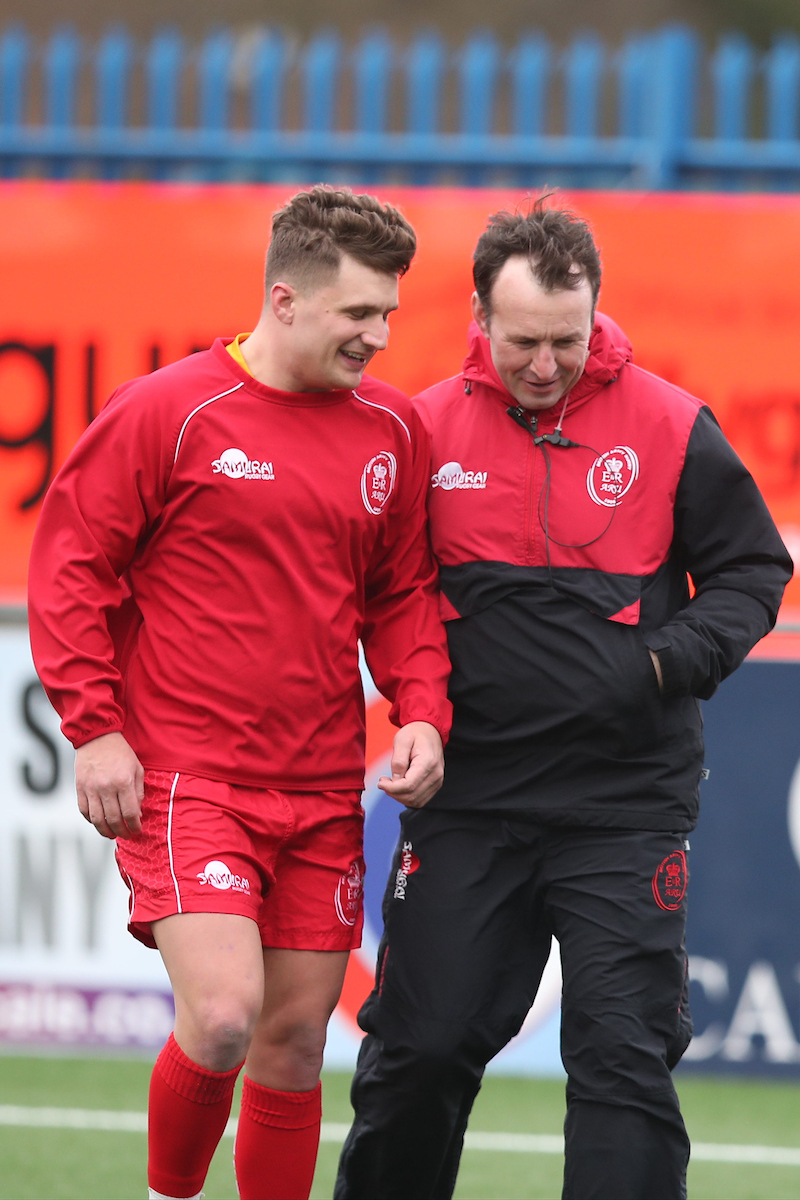
“It’s been immensely frustrating,” he says. “I was appointed in May last year but haven’t had the chance to have eyes on the boys. It’s no different than Burnie’s tenure at the end, which was cut short with no Army Navy. We’d done a lot of preparation and had had the Coventry game, and were in a good position.
“We’ve had quite a few false horizons since May. There’s a lot of governance from a Force protection perspective and the acknowledgement of the military support to the pandemic, and it’s a difficult job that the Army Sport Control Board has. There are a lot of factors which go into it, and you’ve got to weigh up the balance between realism and what you want to do, ie getting back to playing rugby.
“We had the plans in place for the new season and myself and the coaches had done a lot of work ahead of that in September and October. That came and went, then we went into the second lockdown, and now we’re told that there might be a potential date for Sevens in June.
“I’m using that as a yardstick, because if they allow that to happen in a military environment then hopefully the full military teams won’t be too far behind that.
Image Left © Alligin Photography, Scrumpix. Mal with fly half James Dixon at Coventry in March 2020 just before the suspension of sport due to the global pandemic.
“Coming in this year I’ve restructured the Senior set-up, turning the ‘A’ team into a Development squad, where you’ll have some of the experienced players from the Senior squad and the younger lads from the Under-23s who have been pulled forwards after their Inter-Services has finished. They will benefit each other, and you’ll get that nicely meshed team.
“I wanted that continuity of language and training disciplines and principles all the way through from the Academy to the Senior team so the transition is seamless. Then the environment’s familiar to them.”
Capt Roberts is quick to acknowledge that although rugby may have the highest profile, having competitive sport available across the board is going to be a vital and necessary component of helping the Army successfully move into the post-pandemic era.
“It’s part of the lived experience as a soldier, who uses the rugby as a motivational tool to aim for,” he says. “We’re soldiers first and sportspeople second, but it’s the sportsperson bit which keeps them going through the soldier piece.
“It’s imperative that sport comes back into military life as quickly and safely as it can. All work and no play makes for a dull soldier and there’s got to be an incentive to aim for, whether it’s bonuses, lived experiences, and part of that mental wellbeing is part and parcel of it. It’s their release valve and encourages them to go back to their next bit of work.”
Nevertheless, he is also mindful of the need to not rush too quickly into a full rugby environment, with ideas for a squad social before some summer training and an open trial in the autumn.
“We’ve got to be careful,” he says. “I’d love nothing more than to get back onto the park and playing some rugby. But I’m not going to do that at the expense of the players. I’m conscious of the Return to Play protocols in coming back to contact because we’ll have a lot of lads who’ve been static for a long time. They might have done a lot of strength or CV stuff, but it’s crucial that we bring them back in gently to the contact aspect, so I don’t have 50 percent of the squad broken by the time the season starts. But it’s also down to Army HQ and the Army Sport Control Board giving us the green light.”
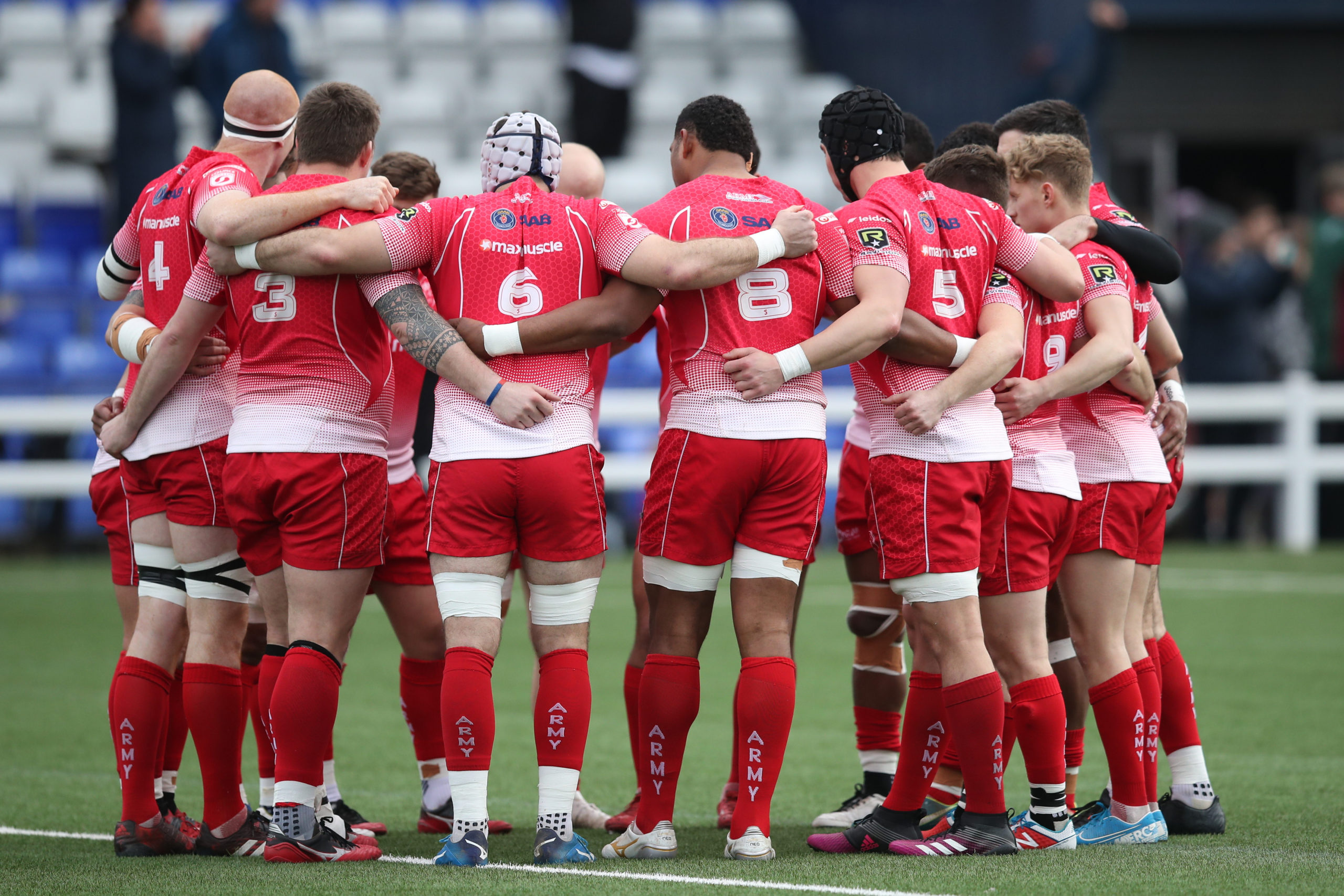
The Army Senior Men’s XV at Butts Park Arena to play Coventry in March 2020 © Alligin Photography, Scumpix
In training and playing a coach gets to see how a player develops their skills, understanding and attitude towards the sport. But the last 12 months have given Capt Roberts and the coaches the opportunity to see something different, such as the psychological resilience of the players as they have adapted to the seismic changes of this new normal.
“In adversity you get those who stand up and be counted, and there are those who are using it as a positive thing. I don’t think that anyone has gone the other way. Everyone’s engaged, is positive, and there are characters within the squad who have had my perception of them change.
“Some of the guys who are extremely motivated also have families, it’s not just the single lads, they want to be in the best possible shape.
“We’ve been doing fitness sessions on Teams with our S&C coach and with a specialist PTI in each of the six regional testing hubs the results were on a central database and I could see those who were working hard, those who wanted to improve and come back bigger, stronger, faster, so that was a barometer for me to gauge the appetite of those who wanted to pull the red shirt back on.
“Then the gyms shut with Covid, so I’ve been phoning the boys individually and a lot of them have been doing their own personal fitness and are really motivated.”
There has also been the positive of seeing more Army players get action in the civilian leagues with the recent start of the RFU Championship, where Cpl Lewis Bean (Rifles) and Gunner Senitiki Nayalo (7 Para RHA) have been getting game time. Cpl Bean has been dual registered with Bedford, and just as the scheme benefits up-and-coming talent, Capt Roberts believes it can do the same for the big second rower.
“It’s brilliant that the Championship is finally up and running,” he says. “Beany will benefit from being at Bedford. Mike Rayer is a really good coach and I’m also excited about him going to Glasgow because it’ll be the next springboard that will catapult him in because he’ll be playing on a bigger stage more regularly.
“We’ve had quite a few conversations over the last 12-18 months about moving forward. I’ve told him that he could be that Premiership player, but that there was also a danger of becoming a ‘professional trainer’. He needs regular game time and he’s excited about going.”
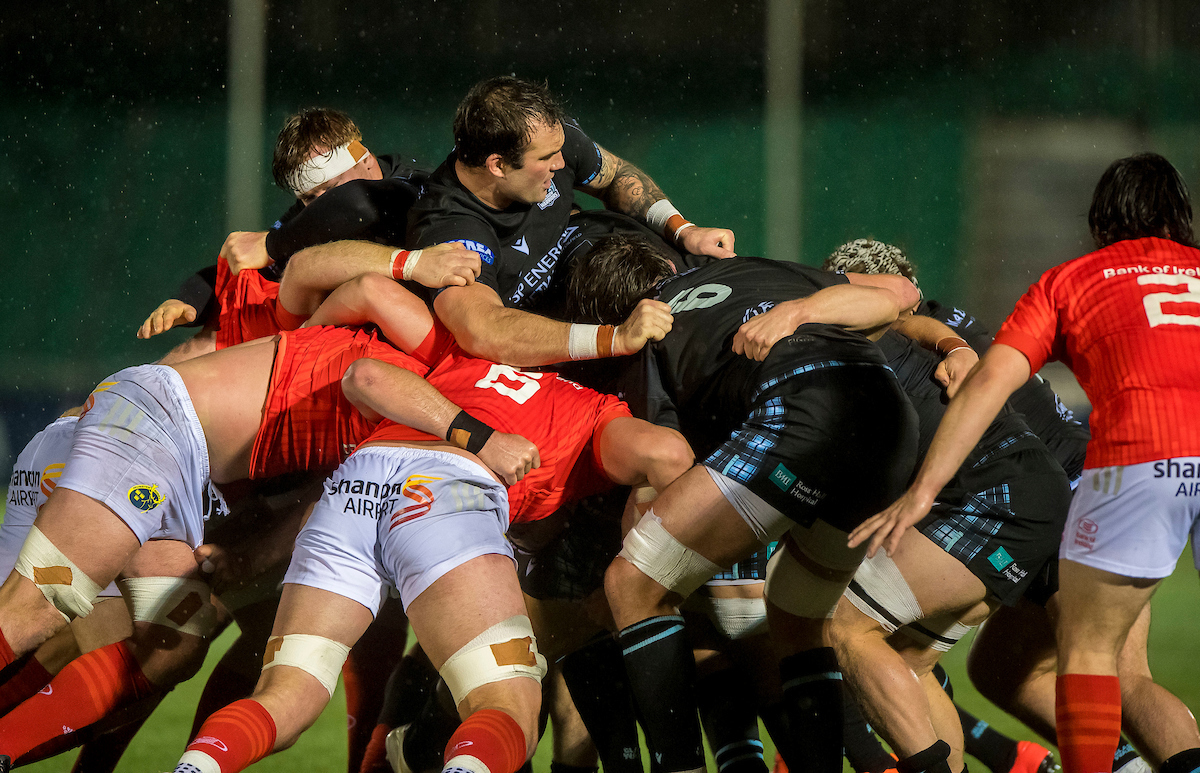
Lewis Bean in action for Glasgow Warriors at the end of 2020 during a loan spell with the club before signing for the 21-22 season © Craig Watson
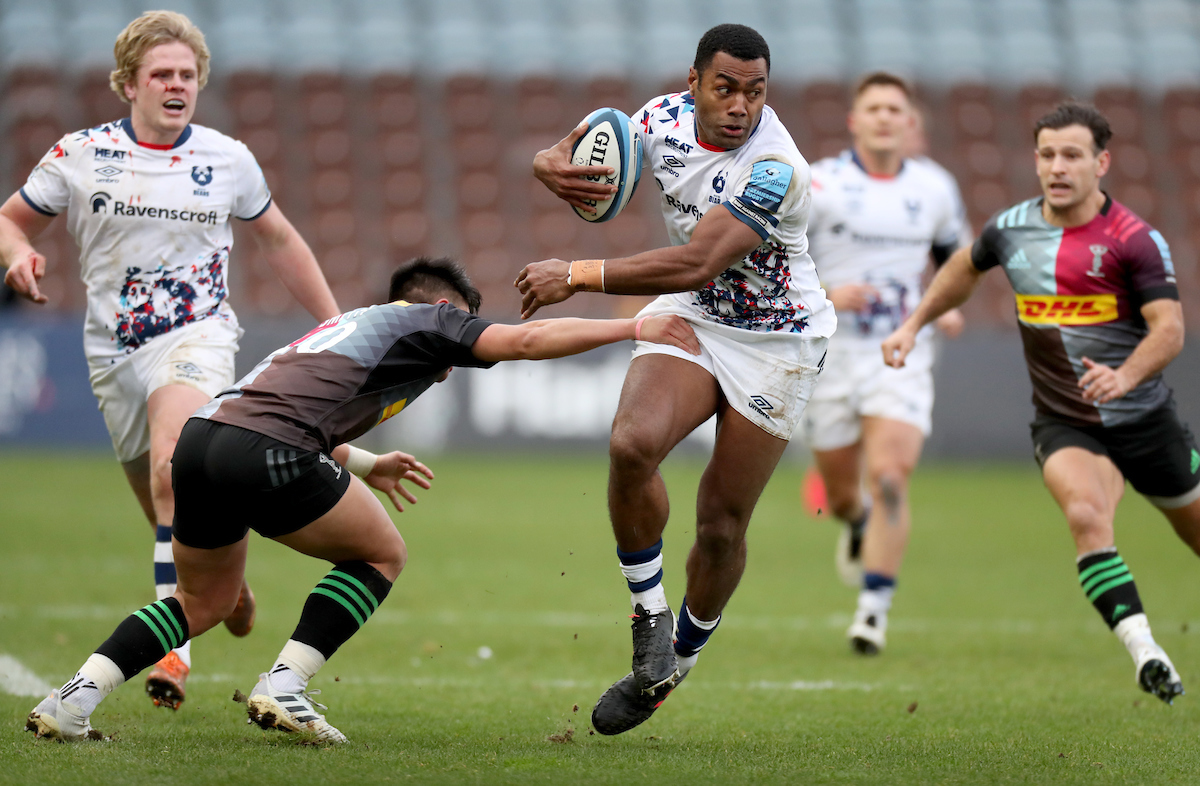
Siva Naulago in action for Bristol Bears v Harlequins in 2020 © Army Rugby Union
Meanwhile in the Premiership the headlines have belonged to Pte Ratu ‘Siva’ Naulago (Yorks), who after being eased into rugby union after moving from Super League’s Hull FC to Bristol has gone from strength to strength with seven tries in his nine league matches played to date.
“If you’re playing in a back three with [Charles] Piatau then he’s going to get double-marked and it opens the space for you,” Capt Roberts says. “The testing time for Siva will be over the next month or two now that he’s a known entity. He’s been doing really well. In the first couple of months he was a bit like a rabbit in the headlights, and I told him to be himself and go out and express himself on the pitch. Now he’s on fire; there are a few little mistakes but Pat Lam will get those out of him, I’m sure.”
Having players gain this experience at the highest levels is important and positive to see, but what matters for Capt Roberts will be how they contribute to the Army set-up, and in this he has no concerns.
“Every single one of the lads who are playing are all really good lads. They’re not arrogant and add real value into the squad when they come back. Roko is a perfect example of that, asking what your objectives are at the start of a session and then buying into that. Having a senior player like that who leads in a session and installs your aims and objectives adds value because the other lads will follow it.”
The ARU is also putting the plans in place for a concerted effort to attract young players with Premiership Academy experience into the Army, and having had the experience of both playing at a high level and coaching younger players, Capt Roberts says that this approach can only be a good thing for Army Rugby, the Army as a whole and the individual players themselves.
“All the attributes that they have as a rugby player are transferrable into the Army,” he says. “Leadership, fitness – physical and mental – and the physical attributes all transfer across, it’s almost plug and play.
“You can also sell to the young players that they could mature as a person, playing rugby with these people, and then potentially get picked up through the Army system. When you look at these individuals who are coming into it, it’s so exciting for me as a former head coach of the Army Under-23 team.
“I saw it as a challenge and an opportunity to instil the key attributes at an early stage, and if you teach them about the correct principles of rugby at an early stage then you reap the rewards later on.”
Words © Chris Wearmouth, Header and Featured Images © Alligin Photography, Scrumpix
